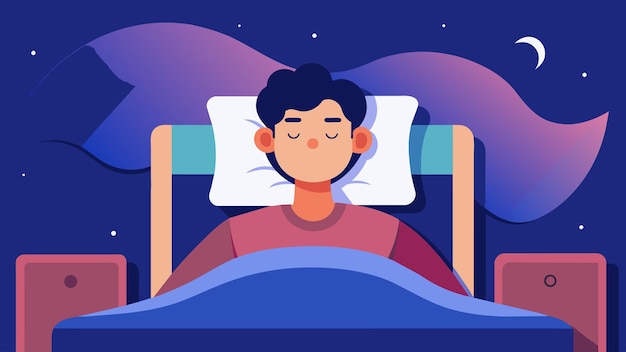The 8th Edition of the Wakefit Great Indian Sleep Scorecard 2025 Highlights the Nation’s Sleep Deficit
By Anisha Singh
National Release, March 2025 – As World Sleep Day 2025 approaches, a new survey underscores a pressing issue plaguing millions across India: the persistent struggle for quality sleep. The 8th edition of the Wakefit Great Indian Sleep Scorecard (GISS) 2025, an annual in-house study by Wakefit.co, a leading D2C sleep and home solutions provider, sheds light on evolving sleep patterns, the growing impact of digital dependency, and the concerning health repercussions of sleep deprivation.
Conducted over a year between March 2024 and February 2025, the survey gathered insights from over 4,500 respondents across the country, painting a comprehensive picture of India’s bedtime behaviors and their implications on daily life. The findings reveal significant trends in late-night habits, stress-induced sleep disturbances, and the consequences of excessive screen time before bed.
Key Findings: The Nation’s Changing Sleep Patterns
• Late Bedtimes: 58% of respondents reported sleeping past 11 p.m., significantly exceeding the recommended bedtime of 10 p.m., contributing to insufficient rest and disrupted sleep cycles.
• Morning Fatigue: 44% of Indians do not wake up feeling refreshed, signaling poor sleep quality and inadequate rest duration.
• Delayed Wake-up Times: 18% of respondents wake up after 9 a.m., deviating from the conventional early start and potentially affecting productivity and mental well-being.
• Stress-Induced Sleep Disruptions: 35% of individuals stay up worrying about the future, indicating a direct correlation between mental health stressors and poor sleep.
Gender and Regional Disparities in Sleep Habits
A deeper dive into the data uncovers disparities in sleep habits across genders and geographies:
• Gender Divide: Women experience sleep challenges at a higher rate than men, with 59% reporting sleeping past 11 p.m. and 50% waking up fatigued, compared to 42% of men. Additionally, 13% of women wake up three or more times per night, while only 9% of men report the same issue.
• City-wise Trends: Kolkata emerges as the city with the highest percentage (72.8%) of individuals going to bed post-11 p.m., whereas Chennai and Hyderabad report the lowest (around 55%). Furthermore, Kolkata and Chennai top the list of cities where respondents do not feel refreshed upon waking up (56%), followed closely by Bengaluru (54%).
Digital Dependency: A Major Sleep Disruptor
The omnipresence of smartphones and other digital devices is playing a significant role in disrupting sleep patterns. The survey highlights an alarming trend:
• Phone Usage Before Bed: A staggering 84% of respondents admit to using their phones just before sleeping, a habit known to delay sleep onset and fragment rest.
• Binge-Watching and Scrolling: 51% of participants attribute their late-night habits to excessive screen time, including scrolling through social media and binge-watching content, leading to daytime sleepiness in 59% of cases.
• Age and City Trends: The 25-30 age group is the most affected, with 90% engaging in bedtime phone usage. Regionally, cities like Gurugram (94%) and Bengaluru (90%) report the highest incidences of digital dependency before sleep.
The Health Consequences: Sleep Deprivation Taking a Toll
A comparative analysis of past GISS reports suggests that sleep deprivation remains an ongoing concern:
• Persistent Late-Night Culture: Over the last three years, 51-58% of respondents have consistently reported sleeping past 11 p.m., highlighting a nationwide struggle to maintain early bedtime routines.
• Suspected Insomnia: Nearly 1 in 3 Indians believe they may suffer from insomnia, pointing to rising concerns about sleep disorders.
• Consistent Digital Disruptions: Phone usage before bedtime has remained high (84-90%) over the years, indicating the difficulty in breaking digital habits.
• Workplace Sleepiness: More than half of respondents experience daytime drowsiness at work, negatively impacting productivity and overall well-being.
A Shift Towards Better Sleep Awareness?
While the numbers indicate a persistent sleep crisis, there is also growing awareness about the importance of quality rest:
• Behavioral Shifts: 38% of respondents acknowledge that disconnecting from screens before bedtime can improve sleep quality.
• Active Efforts: 31% of participants are actively trying to maintain a consistent sleep routine, suggesting a gradual move towards healthier habits.
Expert Insights and Industry Perspective
Commenting on the findings, Chaitanya Ramalingegowda, Co-founder and Director of Wakefit.co, emphasized the significance of prioritizing sleep in an increasingly digital world. “The Great Indian Sleep Scorecard 2025 intends to underscore the evolving sleep habits of Indians and the challenges they face in achieving restorative rest. As digital habits and work pressures continue to shape lifestyles, prioritizing sleep as a pillar of well-being is becoming increasingly important. At Wakefit.co, we remain committed to driving research-backed conversations around sleep health. Through eight years of The Great Indian Sleep Scorecard, we aim to raise awareness and encourage individuals to make informed choices for better sleep health.”
The Great Indian Sleep Scorecard is an annual in-house survey by Wakefit.co, now in its eighth edition. The 2025 report, based on insights from over 4,500 respondents across various demographics, aims to provide a detailed overview of India’s sleep culture. Through its research-driven initiatives, Wakefit.co seeks to contribute to the sleep and home solutions ecosystem by fostering awareness and encouraging healthier sleep practices.
As India grapples with the repercussions of chronic sleep deprivation, the findings of GISS 2025 serve as a wake-up call, urging individuals to rethink their sleep habits and prioritize rest as an essential component of well-being.
The views expressed in this article are solely those of the author and do not necessarily reflect the opinions or views of this Magazine. The author can be reached at [email protected]


Leave a Reply